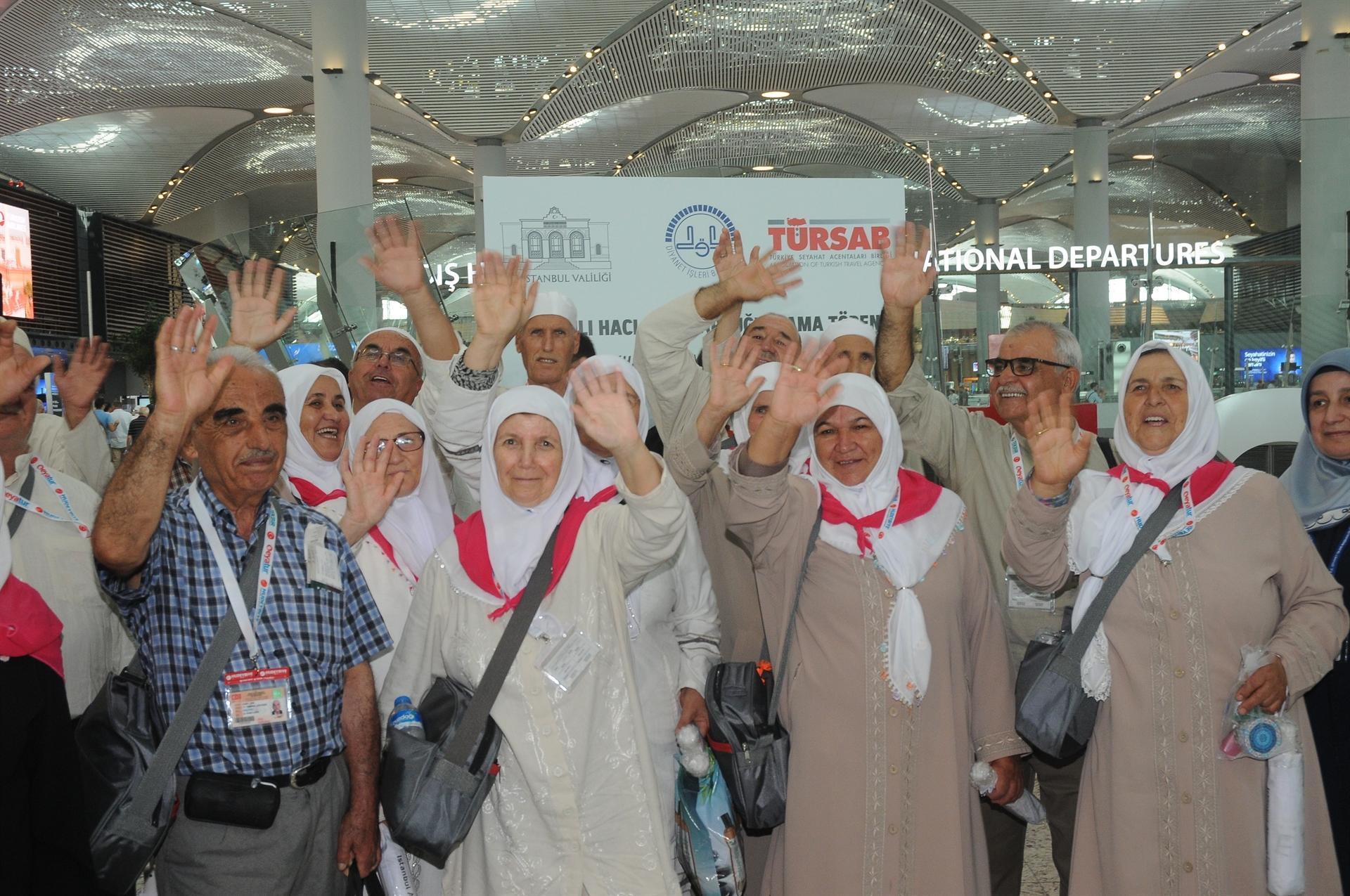Turkish prospective Hajj pilgrims leave for holy cities
ISTANBUL-Anadolu Agency

The first group of prospective Turkish pilgrims left Istanbul on July 5 for the Islamic holy cities of Mecca and Medina in Saudi Arabia for the upcoming annual Hajj duty.
Under the sponsorship of the Religious Affairs Directorate (Diyanet), some 200 people arrived at the Istanbul Airport in Arnavutkoy district at around 11.00 am local time (0800 GMT) for a farewell ceremony before they left for the sacred sites.
As part of the ceremony, the Quran was recited and prayers were made at the airport, where relatives and families of the to-be pilgrims were also present.
From Istanbul, some 11,500 people will go for Hajj this year, Istanbul Governor Ali Yerlikaya told reporters during the ceremony.
The annual Hajj pilgrimage is a religious obligation for Muslims, who must make the journey at least once in their lifetime if financially and physically able.
Considered the fifth "pillar" of the religion, the Hajj is intended to demonstrate solidarity among Muslims and their submission to Allah.
"I am very happy to be able to go to the holy sites. I waited for nine years [to go to Hajj]," said Emine Uyusuk, 80, one of the members of the group, told Anadolu Agency at the airport.
Recalling that she went to the holy sites twice before as part of an "Umrah" Uyuşuk said: "When I return back here, the holy sites are always on my mind. When I open my eyes, I am always thinking of them."
Umrah refers to a voluntary minor pilgrimage to Mecca and Medina that Muslims can perform at any time of the year.
"I learned in January that I would go to Hajj. Since then, I've counted the days," Uyusuk said, expressing her excitement. "I am excited most to visit the tomb of our prophet [Muhammad in Medina]," she added.
Holiest journey for Muslims
Another prospective pilgrim, Nermin Barlas, (55) will go for Hajj together with her husband.
"I cannot describe my feelings. I am very excited and very happy," Barlas said.
"What makes me most excited is to go to the tomb of our prophet, to see the Kaaba and to Mount Arafat," she said, adding that this would be her first time in Mecca and Medina.
Using a wheelchair Aise Yilmaz, 80, is going to the holy sites together with her son Esat Yilmaz, 55, and other family members.
"I've been waiting for this moment for nine years. When I applied for the Hajj, I was healthy and could walk by myself. Now, I will perform Hajj by using a wheelchair. My son will help me," she said.
"I will pray for everyone, all the Muslims and all the humanity without exception," Yilmaz noted.
The pilgrims to-be will stay in the holy sites for 45 days as part of the Diyanet's program.
The Hajj pilgrimage takes place every year from the eighth to the 12th day of Zulhijja, the 12th and final month of the Islamic calendar.
On these five days, pilgrims converge on Mecca, where they circumambulate the Kaaba seven times, run between the hills of Al-Safa and Al-Marwah, drink water from the sacred well of Zamzam, stand vigil on the plains of Mount Arafat and pelt the "devil" with stones.
Pilgrims then cut their hair and sacrifice an animal -- meat from which is traditionally distributed to the poor -- before celebrating Eid al-Adha, or the "Festival of Sacrifice".
Since the Islamic calendar is based on the lunar cycle, the date of the Hajj changes each year on Western calendars.
















